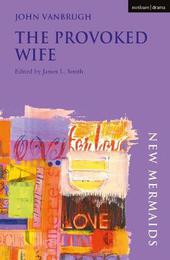
|
The Provoked Wife
Paperback / softback
Main Details
Description
In this late Restoration comedy Vanbrugh not only pushes the unhappily married couple, which had been good for no more than a raucous subplot in earlier comedies of manners, centre-stage - he also makes the audience sympathise with the wife: The only thing Sir John and Lady Brute agree on is that they ought not to have married each other; now he spends his time in drunken debauchery with his cronies, while she tries to withstand the advances of her admirer Constant. After a series of farcical accidents involving cross-dressing and the eternal lover-in-the-wardrobe, the couple end where they began. Since the scene in which Sir John disguises as a clergyman was deemed 'immoral and profane', an alternative scene (in its way equally profane) was written, in which he disguises as his own wife. This edition provides both versions and discusses the play's continuing popularity on the stage.
Author Biography
John Vanbrugh (1664-1726) was an English playwright of the later Restoration era; also the architect who created the English Baroque style in architecture, designing Blenheim Palace in Oxfordshire and Castle Howard in Yorkshire. One of 19 children of a Flemish sugar baker, Vanbrugh became an officer with the Earl of Huntingdon's regiment in 1686. Four years later he was imprisoned in Calais as a suspected spy, being moved in 1692 to the Bastille. The regime was not brutal: he enjoyed four course dinners and three bottles of wine a day and amused himself by writing a draft of The Provok'd Wife. Vanbrugh's first successful play was The Relapse: or Virtue in Danger, a comedy about a libertine and his long-suffering wife. It was written and produced in 1696. At Lord Halifax's urging, Vanbrugh revised The Provok'd Wife for production at Lincoln's Inn Fields Theatre in 1697; it was a comedy about a miserable marriage that would later provide David Garrick with one of his most famous roles. The robust action and bawdy realism of his plays, however, were beginning to attract attention from moralists. Both works were singled out by Jeremy Collier in his celebrated pamphlet A Short View of the Immorality of the English Stage. Vanbrugh died of asthma in 1726.
|